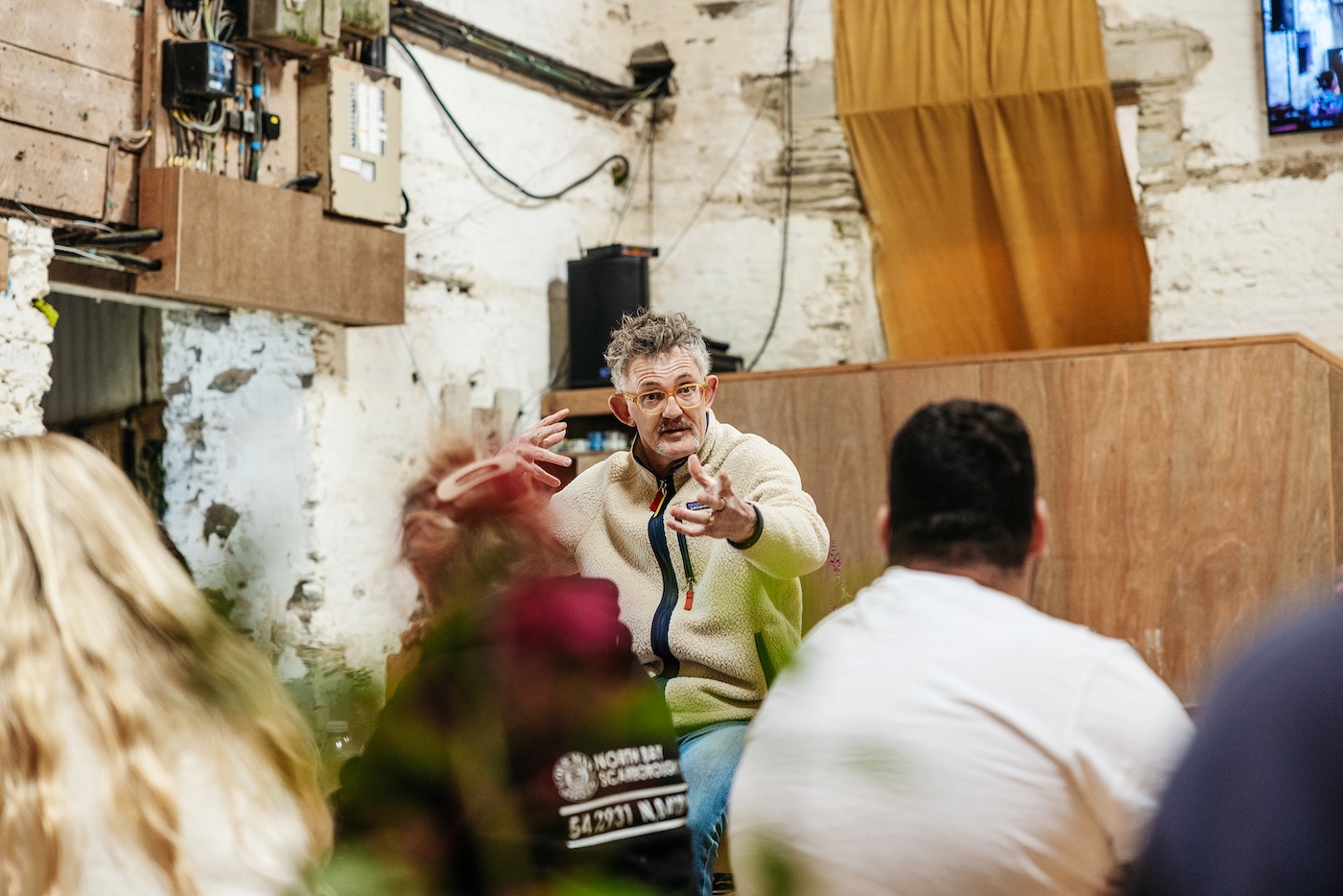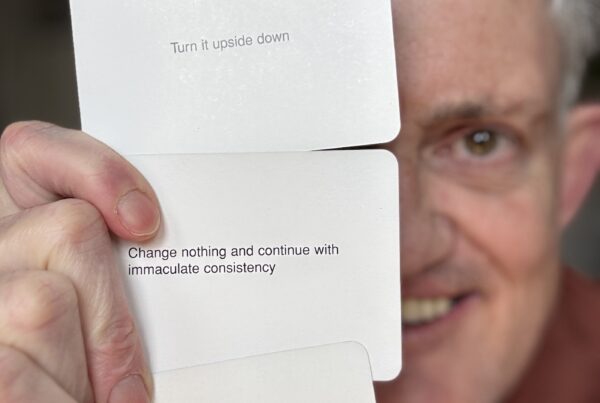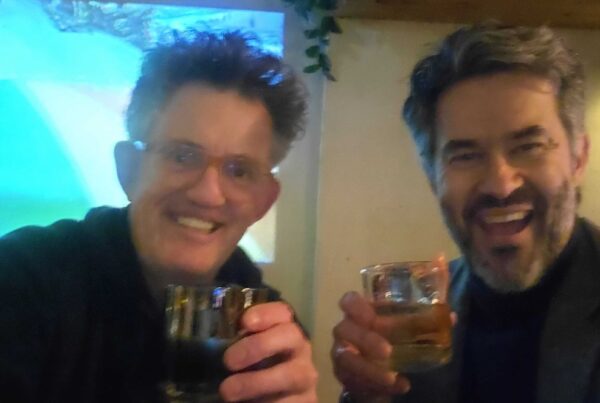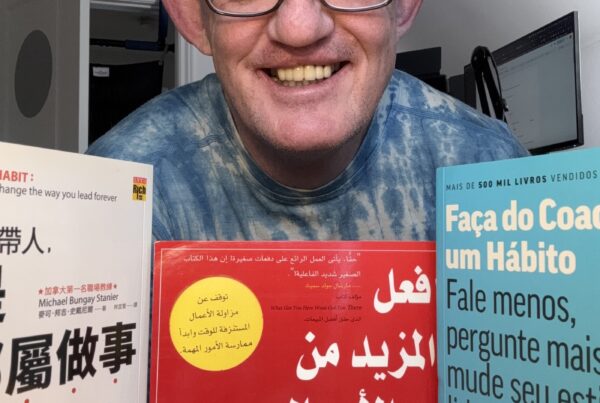
Me teaching at the Do conference in Wales in July.
My most surprising principle for coaching (and life)
I don’t have a coaching practice.
Years ago now, I realized that the way I best serve the world and my own talents was to create “simplicity on the other side of complexity” with big ideas. I wanted to make powerful ideas feel understandable, practical, and doable for people.
So I closed down my coaching practice, and these days I only formally coach people in The Conspiracy, our membership group for people working on their “something that matters”.
But I informally coach All. The. Time.
Staying curious a little bit longer and rushing to advice-giving a little more slowly is now DEEP in my bones. If you’re in a conversation with me, it’s a fair bet questions will be asked. 🙂
What makes me a great coach? I’m lazy
If you come and watch me coach on November 11 (please do), you’ll see that I’m working less hard than you might expect.
That’s deliberate.
I work very hard to be as lazy as possible.
Behind that practice are three core insights.
First, my advice is rarely as good as I think it is. Yes, I know it sounds *totally brilliant* as it rattles around my head. But I’ve come to realize that mostly I understand the situation less well than I think I do, and that my brain’s agenda is to make me feel smarter than I really am.
And there’s always an opportunity to share the idea, but why not wait a little longer before I do?
Second, if they’re doing the work, they’re learning. When I tell them my ideas, all they have to do is nod and say, “Ooh, Michael – you’re so clever!” But if they have to figure things out themselves, they’re literally creating new connections in their brain, which means they’re literally becoming smarter.
Finally, quoting spiritual teacher Jiddu Krishnamurti, “I don’t mind what happens.” I’m fully committed to show up and be as helpful as possible, and I wish the other person the best with my fiercest love. But I hold the outcome of the conversation in the lightest way possible. Which means I don’t have to “solve the problem” or “stick the landing”.
If I’m lazy, I give myself the best chance to coach well and also allow the person I’m coaching to get what they want and need from our conversation.
Want The Works in your inbox? Sign up (free) here




